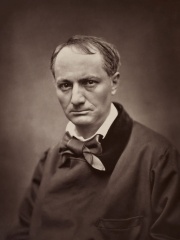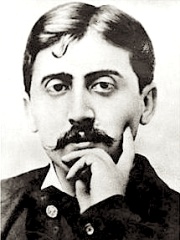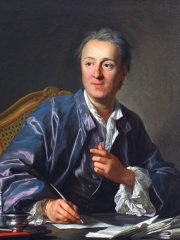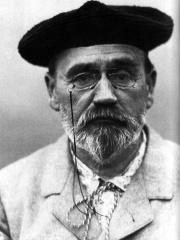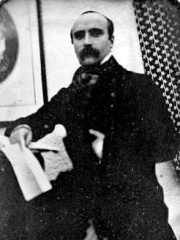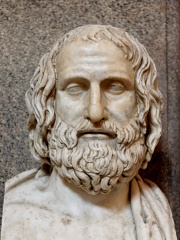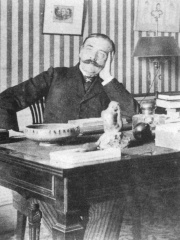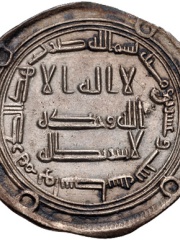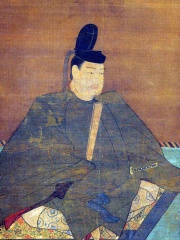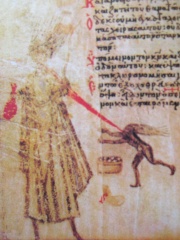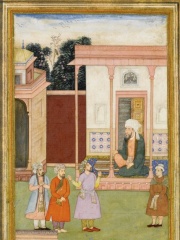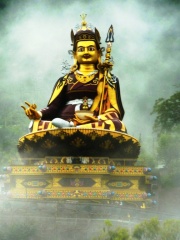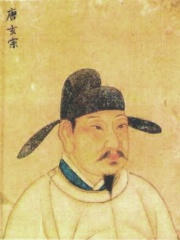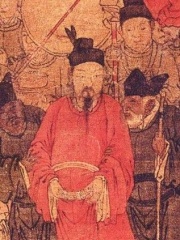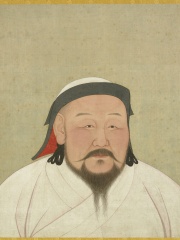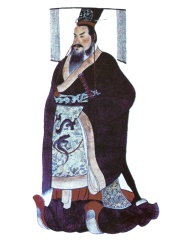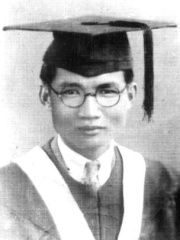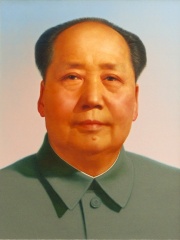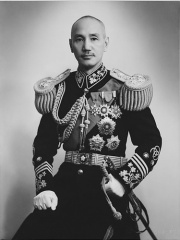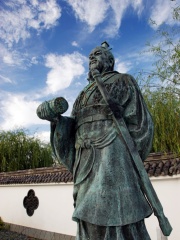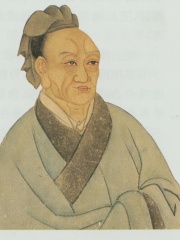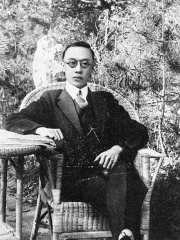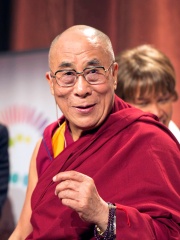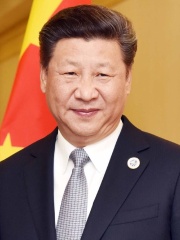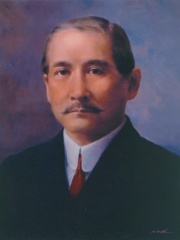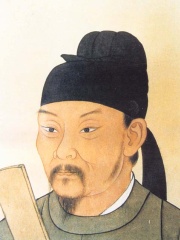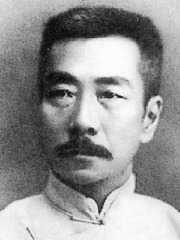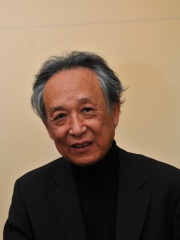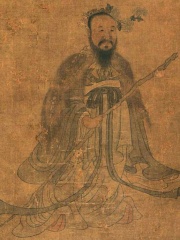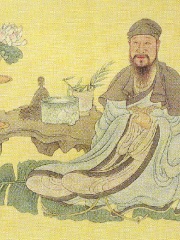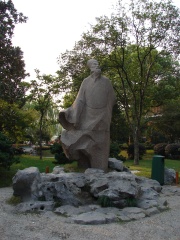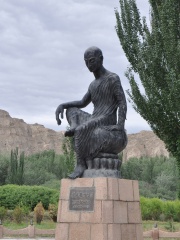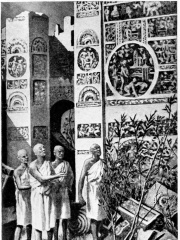Writer
Li Bai
701 - 762
EN.WIKIPEDIA PAGE VIEWS (PV)

 Li Bai
Li Bai
His biography is available in 151 different languages on Wikipedia (up from 144 in 2024). Li Bai is the 56th most popular writer (up from 70th in 2024), the 9th most popular biography from China (up from 10th in 2019) and the most popular Chinese Writer.
Li bai is most famous for being a poet who was born in the Tang Dynasty and was well known for his poems about the natural world.
Memorability Metrics
Page views of Li Bai by language
Among Writers
Among writers, Li Bai ranks 56 out of 7,302. Before him are Charles Baudelaire, Marcel Proust, Denis Diderot, Émile Zola, Gustave Flaubert, and Euripides. After him are Octave Mirbeau, Astrid Lindgren, Oscar Wilde, Mark Twain, Henrik Ibsen, and Stendhal.
Most Popular Writers in Wikipedia
Go to all RankingsCharles Baudelaire
1821 - 1867
HPI: 84.42
Rank: 50
Marcel Proust
1871 - 1922
HPI: 84.39
Rank: 51
Denis Diderot
1713 - 1784
HPI: 84.31
Rank: 52
Émile Zola
1840 - 1902
HPI: 84.25
Rank: 53
Gustave Flaubert
1821 - 1880
HPI: 84.13
Rank: 54
Euripides
480 BC - 406 BC
HPI: 84.12
Rank: 55
Li Bai
701 - 762
HPI: 84.11
Rank: 56
Octave Mirbeau
1848 - 1917
HPI: 84.08
Rank: 57
Astrid Lindgren
1907 - 2002
HPI: 83.96
Rank: 58
Oscar Wilde
1854 - 1900
HPI: 83.95
Rank: 59
Mark Twain
1835 - 1910
HPI: 83.94
Rank: 60
Henrik Ibsen
1828 - 1906
HPI: 83.92
Rank: 61
Stendhal
1783 - 1842
HPI: 83.83
Rank: 62
Contemporaries
Among people born in 701, Li Bai ranks 1. After him are Ibn Hisham, Yazid III, Emperor Shōmu, John VII of Constantinople, Tzitzak, Saman Khuda, Al-Khayzuran, Theophano of Athens, Thekla, wife of Michael II, Yahya ibn Khalid, and Euphemius. Among people deceased in 762, Li Bai ranks 1. After him are Padmasambhava, Emperor Xuanzong of Tang, Emperor Suzong of Tang, Muhammad al-Nafs al-Zakiyya, and Vineh of Bulgaria.
Others Born in 701
Go to all RankingsLi Bai
WRITER
701 - 762
HPI: 84.11
Rank: 1
Ibn Hisham
RELIGIOUS FIGURE
701 - 833
HPI: 70.58
Rank: 2
Yazid III
POLITICIAN
701 - 744
HPI: 69.96
Rank: 3
Emperor Shōmu
POLITICIAN
701 - 756
HPI: 67.04
Rank: 4
John VII of Constantinople
POLITICIAN
701 - Present
HPI: 66.90
Rank: 5
Tzitzak
POLITICIAN
701 - 750
HPI: 64.59
Rank: 6
Saman Khuda
POLITICIAN
701 - Present
HPI: 64.13
Rank: 7
Al-Khayzuran
COMPANION
701 - 789
HPI: 64.01
Rank: 8
Theophano of Athens
POLITICIAN
701 - 801
HPI: 63.87
Rank: 9
Thekla, wife of Michael II
POLITICIAN
701 - 823
HPI: 63.18
Rank: 10
Yahya ibn Khalid
POLITICIAN
701 - 806
HPI: 62.85
Rank: 11
Euphemius
MILITARY PERSONNEL
701 - 830
HPI: 57.60
Rank: 12
Others Deceased in 762
Go to all RankingsLi Bai
WRITER
701 - 762
HPI: 84.11
Rank: 1
Padmasambhava
PHILOSOPHER
717 - 762
HPI: 78.07
Rank: 2
Emperor Xuanzong of Tang
POLITICIAN
685 - 762
HPI: 74.80
Rank: 3
Emperor Suzong of Tang
POLITICIAN
711 - 762
HPI: 68.58
Rank: 4
Muhammad al-Nafs al-Zakiyya
POLITICIAN
690 - 762
HPI: 63.30
Rank: 5
Vineh of Bulgaria
POLITICIAN
740 - 762
HPI: 59.14
Rank: 6
In China
Among people born in China, Li Bai ranks 9 out of NaN. Before him are Kublai Khan (1215), Qin Shi Huang (-258), Huang Xianfan (1899), Mao Zedong (1893), Chiang Kai-shek (1887), and Zheng He (1387). After him are Sun Tzu (-544), Sima Qian (-145), Puyi (1906), 14th Dalai Lama (1935), Xi Jinping (1953), and Sun Yat-sen (1866).
Others born in China
Go to all RankingsKublai Khan
POLITICIAN
1215 - 1294
HPI: 91.15
Rank: 3
Qin Shi Huang
POLITICIAN
258 BC - 210 BC
HPI: 90.99
Rank: 4
Huang Xianfan
POLITICIAN
1899 - 1982
HPI: 89.40
Rank: 5
Mao Zedong
POLITICIAN
1893 - 1976
HPI: 88.70
Rank: 6
Chiang Kai-shek
MILITARY PERSONNEL
1887 - 1975
HPI: 86.25
Rank: 7
Zheng He
EXPLORER
1387 - 1433
HPI: 84.21
Rank: 8
Li Bai
WRITER
701 - 762
HPI: 84.11
Rank: 9
Sun Tzu
PHILOSOPHER
544 BC - 496 BC
HPI: 83.60
Rank: 10
Sima Qian
HISTORIAN
145 BC - 86 BC
HPI: 83.52
Rank: 11
Puyi
POLITICIAN
1906 - 1967
HPI: 83.41
Rank: 12
14th Dalai Lama
RELIGIOUS FIGURE
1935 - Present
HPI: 83.17
Rank: 13
Xi Jinping
POLITICIAN
1953 - Present
HPI: 82.81
Rank: 14
Sun Yat-sen
POLITICIAN
1866 - 1925
HPI: 82.77
Rank: 15
Among Writers In China
Among writers born in China, Li Bai ranks 1. After him are Du Fu (712), Lu Xun (1881), Gao Xingjian (1940), Wu Cheng'en (1500), Qu Yuan (-343), Mo Yan (1955), Luo Guanzhong (1330), Bai Juyi (772), Su Shi (1037), Kumārajīva (343), and Faxian (340).
Li Bai
701 - 762
HPI: 84.11
Rank: 1
Du Fu
712 - 770
HPI: 82.41
Rank: 2
Lu Xun
1881 - 1936
HPI: 77.56
Rank: 3
Gao Xingjian
1940 - Present
HPI: 76.23
Rank: 4
Wu Cheng'en
1500 - 1582
HPI: 73.86
Rank: 5
Qu Yuan
343 BC - 278 BC
HPI: 73.42
Rank: 6
Mo Yan
1955 - Present
HPI: 73.16
Rank: 7
Luo Guanzhong
1330 - 1400
HPI: 72.31
Rank: 8
Bai Juyi
772 - 846
HPI: 71.81
Rank: 9
Su Shi
1037 - 1101
HPI: 71.71
Rank: 10
Kumārajīva
343 - 413
HPI: 71.30
Rank: 11
Faxian
340 - 418
HPI: 70.81
Rank: 12
